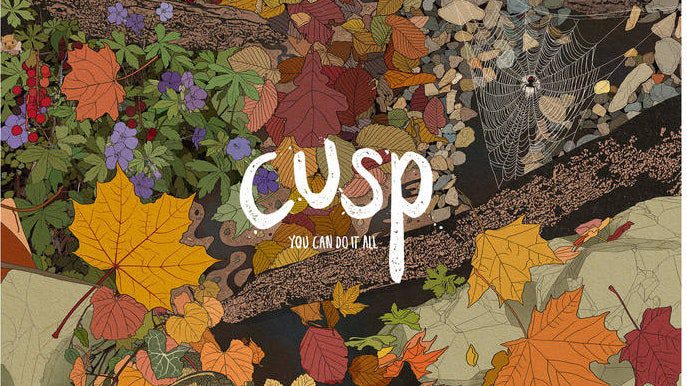
For a while, any band with a Big Muff pedal and a tower of stacked Marshalls was stamped as a Dinosaur Jr. understudy, and some of them courted the comparison firsthand. But lately, the tides have shifted. A new generation of musicians are idolizing Steve Hartlett over J Mascis, naming Connecticut fuzz-rockers Ovlov as their inspiration for noisy rock with a melodic underbelly. “Ovlov is the band that made me want to BE a band,” Chicago group Cusp once tweeted; their live sets make that obvious.
On their debut full-length You Can Do It All, Cusp tap into the same attributes that make Ovlov so beloved: deafening riffs that turn into singalong earworms, weighty power chords that feel like thick wool, an opening lick that you never get tired of hearing. Singer Jen Bender and guitarist Gaelen Bates both share strumming duties while bassist Matt Manes anchors the deep end, resulting in lush, dizzying tracks like “Win” or “Limited Edition” that dip into the warm tones of shoegaze.
But You Can Do It All isn’t straightforward fuzz idolization. Cusp pull their indie rock in weirder directions, reveling in intentional subversion: minor-key solos instead of major-key niceties, bridges that opt for unconventional chord progressions. Bender puts a conversational twist on her pop vocals, as seen in the lilting, sugary vocal slides of “Dead Things Talk” and the punchy power-pop harmonies of “Inside Out.” You’d be forgiven for thinking Speedy Ortiz came on shuffle. Despite having moved to the Windy City only a year ago, Cusp are already a snug fit in Chicago’s music scene, resting between the unpredictable thrashing of Melkbelly and the nimble dexterity of Floatie, the local art freaks of their respective subgenres.
Though Cusp are the band at the house show that has you digging into your pockets to fish for earplugs, their most striking songs on You Can Do It All are unexpectedly quiet confessionals. The album grapples with impermanence and loss; Bender expresses her alienation through simple phrasing. On “You Can’t Do It All,” a wash of guitar and bass bleeds into white noise as she emphasizes the paralyzing feeling of having not accomplished enough: “You can do anything you want, but you can’t do it all,” she repeats numbly. On the album opener, Bender whispers “it will never be okay” during a midnight breakdown while viola and an electric guitar riff creep beneath her. Despite the song’s brevity, it highlights Bender’s skill at conveying the world’s coldness and unpredictability.
Ultimately, it’s the unassuming “It’s Not My Job” that steals the show. Bender addresses an old relationship, wishing to shield a loved one from all harm: “I thought of your parents looking to me/We’re all here to help you/We’re all on your team.” But as the song progresses, she works past the guilt of setting boundaries: “It’s someone’s job, but it’s not mine.” Her guitar rolls through dreamy keyboard notes while Terrin Munawet’s steady, minimalist drumming keeps her grounded. It’s this bittersweetness, this balance of discord and pleasantry, that makes You Can Do It All a memorable first impression.
